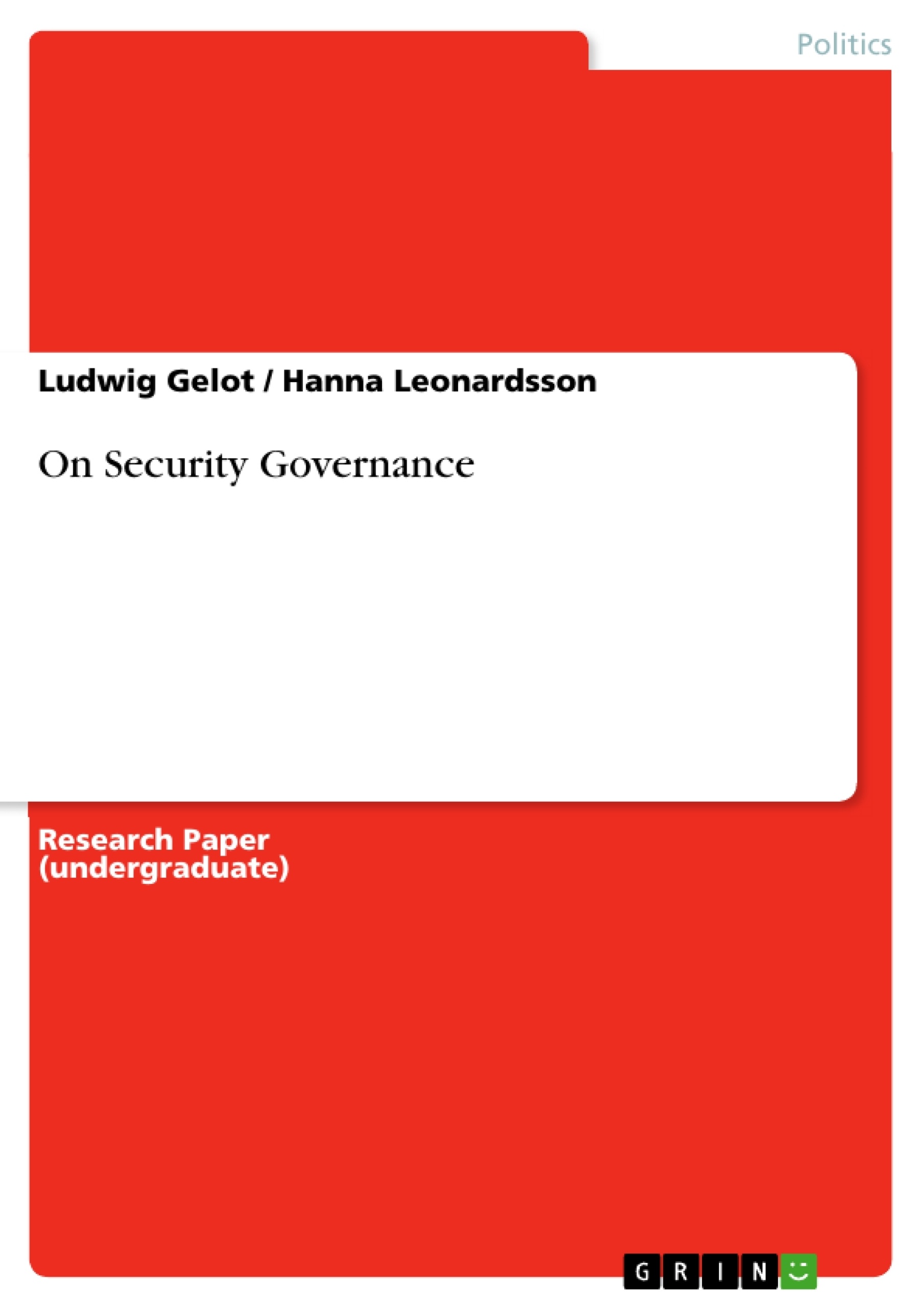Due to global patterns of migration, economic interaction and political interdependence as well as the emergence of new technologies, communication systems and modes of transportation, civil wars have shifted from being a domestic issue to becoming a concern for neighbouring states and the international community. When local institutions and government structures have not been able to prevent the escalation of conflicts, external actors have intervened to restore law and order and to stabilise the situation. The international community has pursued an increasingly interventionist agenda with the legitimation of intervention by external actors with a view to developing and strengthening local governance. The recognition of the importance of this global-local interplay has been accompanied by a greater awareness of the interdependence and interconnectedness of international, regional and national security. Globalising forces and the existence of glocal governance processes mean that external interventions have become governance bridges with multifaceted implications at both the international and local levels.
A unique implication of this state of affair is the increasing interest paid by states and international organisations in weak and failing states. Indeed, our globalised condition means that the international community has been led to intervene in areas where governance was such that it posed a threat to international peace and security. There has been an increasing interest in restoring governance and fostering ‘good governance’ or ‘good enough governance’. Interventions have taken place at the political and economic levels through the World Bank and IMF but in a large number of cases, interventions have focused on security and the reform of the security sector as means to achieve good governance and to deal with threats to peace and security.
In this context, a number of scholars have turned their attention to the interplay between governance and security and security governance’ as a new area of concern. The term governance has been the subject of numerous critiques for being unclear and analytically useless. Likewise, the term security is essentially contested. As a result, the concept of security governance is still lacking a clear and consensual definition and remains a matter of debate. Based on an analysis of the concepts of governance and security, this book explores and defines what is commonly called security governance.
Table of Contents
- Part 1 On Governance.
- Introduction
- The emergence of Governance as a concept.
- Government and (Global) Governance
- Governance by, with and without Government.
- The State and Shadows of Hierarchy
- Shadows of Hierarchy beyond the State....
- Governance and Governmentality.
- Conclusion.
- Part 2 - On Security Governance....
- Introduction
- Defining Security
- Defining the Security Sector
- Matrix of Security Governance Approaches.
- World Bank and Good Governance of the Security Sector.
- Security Governance and Public Policy
- Security Governance from a Global Governance Perspective......
- Security Governance and the EU as a security governance actor
- Criminology and the Nodal Governance of Security.
- Security governance according to Huysmans…..\n
- Peacebuilding and State-building as Security Governance .
- Conclusion....
- Part 3 - On Security Sector Reform...
- Introduction.
- History of SSR and Main Approaches
- SSR and Governance....
- SSR and Local Ownership
- Involving Non-State Actors in SSR
- Coordination and the Holistic Nature of SSR
Objectives and Key Themes
The text aims to provide a comprehensive overview of the concept of security governance, tracing its emergence and exploring its evolution in the context of globalisation and the increasing interconnectedness of security and development. The authors analyze the theoretical foundations of governance and its application to the security sector, highlighting the changing roles of state and non-state actors.
- The evolving concept of governance and its impact on state and non-state actors.
- The interplay between security and development within the framework of global governance.
- The role of security governance in promoting peacebuilding and state-building.
- The application of governance principles to security sector reform.
- The challenges and opportunities of involving non-state actors in security governance.
Chapter Summaries
The introduction provides a contextual framework for understanding the emergence of governance as a concept, tracing its roots in the changing dynamics of state and non-state actor interactions, globalization, and the security-development nexus. Part one delves deeper into the multifaceted nature of governance, exploring its theoretical underpinnings, the evolving relationship between government and governance, and the concept of governmentality. Part two focuses on security governance, examining the complexities of defining security and the security sector, presenting a matrix of security governance approaches, and analyzing the role of the World Bank and the EU in shaping security governance practices. The chapter concludes by discussing security governance from a global governance perspective, drawing on criminological insights and exploring the ideas of Huysmans.
Keywords
Key terms and concepts explored in this work include governance, security governance, global governance, security sector reform, state-building, peacebuilding, security-development nexus, non-state actors, and governmentality. The analysis emphasizes the interconnectivity of these concepts and their implications for international relations, policymaking, and contemporary security challenges.
- Citation du texte
- Ludwig Gelot (Auteur), Hanna Leonardsson (Auteur), 2014, On Security Governance, Munich, GRIN Verlag, https://www.grin.com/document/278068



